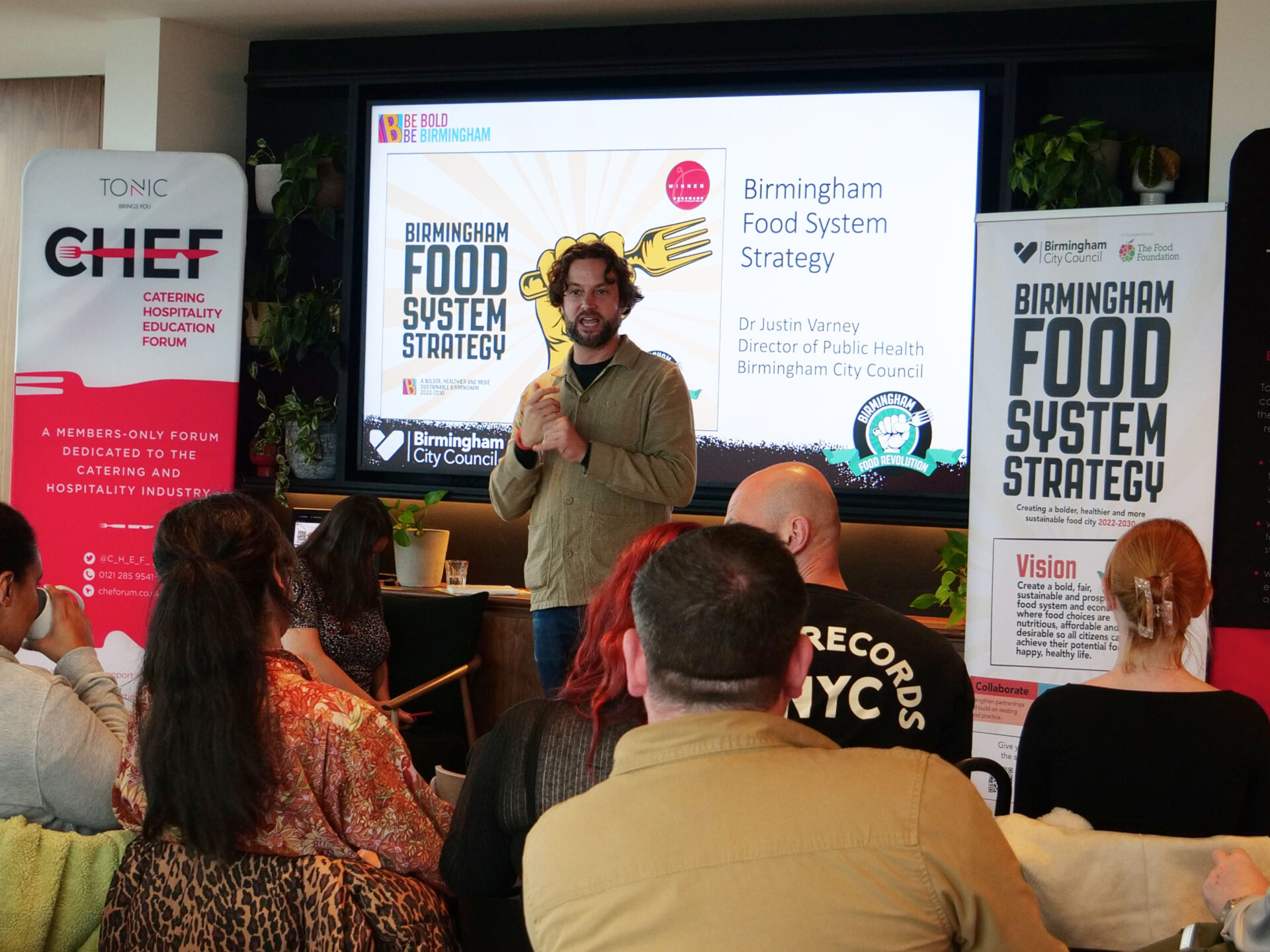Revolutionising Talent Retention: The power of training and tech, and attracting Gen Z.
At Tonic Talent, we are always looking to help our clients retain their people and crucially appeal to the wider talent pool including Gen Z. However, according to KAM Media, only 28% of Gen Z view Hospitality as a viable career choice. The reason could be that there’s a misconception that hospitality careers offer limited growth opportunities and lack stability. Additionally, there may be a perception that hospitality jobs are low-paying and require little skill or education. Addressing these misconceptions requires a concerted effort to showcase the potential for career advancement, competitive compensation, and the diverse skill set required in the hospitality industry.
One of the key factors influencing Gen Z’s reluctance to pursue careers in hospitality is the perceived lack of clear career pathways. To address this, hospitality employers must develop structured career progression frameworks that outline opportunities for advancement and skill development. By offering clear pathways for growth, employers can attract ambitious individuals eager to advance their careers within the industry.
Beyond formal training programs, fostering a culture of continuous learning is essential for attracting and retaining talent in the hospitality industry. Employers should encourage employees to pursue ongoing education and skill development opportunities through certifications, workshops, or online courses. By promoting a culture of learning, employers not only demonstrate their commitment to employee growth but also create an environment where individuals feel valued and supported in their professional development. LEADING TO GREATER RETENTION
In a Caterer Insight Report, unsurprisingly, salary tops the list (86%) of features people look at when looking for a new role, but this is closely followed by training and development (71%) and clear levels of promotion (63%).
Training as a Solution:
The hospitality industry is witnessing a paradigm shift in its approach to addressing the staffing crisis through robust training and development programs. By investing in the skills and capabilities of existing employees while actively attracting new talent, businesses can fortify their workforce and foster a culture of continuous improvement.
Apprenticeship Initiatives:
Brands such as Pret a Manger are leading the charge in talent development by implementing comprehensive apprenticeship schemes. These initiatives provide employees with the opportunity to undergo structured training and gain valuable qualifications while advancing their careers within the organisation. For instance, Pret’s fully-funded business management degree apprenticeship program equips candidates with the knowledge and skills needed to transition from frontline roles to managerial positions. By nurturing talent from within, businesses not only address the immediate skills gap but also cultivate a loyal and engaged workforce committed to long-term success.
Chef Development Programs:
Renowned chef Simon Rogan is championing the cause of culinary education and professional development through bespoke training programs such as his Culinary Academy an immersive culinary apprenticeship program designed to cultivate the next generation of culinary talent. The Academy offers aspiring chefs the opportunity to embark on a year-long journey of culinary discovery, working alongside Rogan and his team at his flagship restaurant, L’Enclume, in the picturesque village of Cartmel, Cumbria. Through hands-on experience, mentorship, and exposure to Rogan’s farm-to-table ethos, apprentices gain invaluable insights into the art and science of cooking, while honing their skills and creativity in a dynamic culinary environment.
Upskilling and Cross-Training:
In addition to formal apprenticeship programs, businesses are embracing the concept of upskilling and cross-training to enhance the versatility and adaptability of their workforce. By providing employees with opportunities to acquire new skills and explore different roles within the organisation, businesses can unlock hidden potential and foster a culture of learning and innovation. This approach not only strengthens the capabilities of individual employees but also bolsters organisational resilience in the face of evolving industry dynamics.
Collaborative Industry Initiatives:
Collaborative industry initiatives, such as the Springboard, HITTraining, and The Institute of Hospitality bring together employers, training providers, and government agencies to develop standardised training frameworks and promote best practices in talent development. By leveraging collective expertise and resources, businesses can enhance the effectiveness and scalability of their training initiatives, ultimately driving positive outcomes for the entire hospitality ecosystem.
Embracing Efficiency through Tech:
In the digital age, technology serves as a powerful enabler for optimising operations, enhancing productivity, and mitigating the impact of staffing shortages in the hospitality sector. By leveraging innovative digital solutions, businesses can streamline workflows, automate repetitive tasks, and empower employees to focus on delivering exceptional guest experiences. I sought the expertise of one of Tonic Talent’s friends, Chris Fletcher, of Tech on Toast. They aim to bridge the gap between operators and suppliers by providing a platform for discovering new technology solutions and supporting suppliers in raising awareness about their products. Here, Chris provides his Top Hospitality Tech Platforms.
Digital Workforce Management Platforms:
Chris tells me digital workforce management platforms, such as Bizsimply or S4 Labour, offer comprehensive tools for scheduling, time tracking, and communication, enabling businesses to efficiently allocate resources and optimise staffing levels based on demand fluctuations. These platforms provide real-time visibility into employee availability, preferences, and certifications, allowing managers to make data-driven decisions that maximise operational efficiency while ensuring compliance with labour regulations.
Virtual Training and Development:
Virtual training and development platforms, such as Sideways and CPL offer solutions for delivering engaging and interactive training programs Chris explains.
Data:
For data-driven performance management, Fletcher suggests platforms, such Tenzo and Nory that provide actionable insights into employee engagement, satisfaction, and performance, enabling businesses to identify areas for improvement and implement targeted interventions to drive positive outcomes. These platforms leverage employee feedback surveys, analysis, and analytics to identify trends, monitor progress, and measure the impact of organisational initiatives on employee morale and productivity. By harnessing the power of data-driven insights, businesses can optimise employee performance, foster a culture of continuous improvement, and drive sustainable business growth.
Bonus: Remember, to tell your SUCCESS STORIES!
Another effective way to change perceptions about hospitality careers is by showcasing the success stories of individuals who have thrived in the industry. I see this as providing potential employees with references of your business. By highlighting the diverse career paths and achievements of hospitality professionals, employers can inspire and motivate aspiring talent to pursue careers in hospitality. Additionally, sharing testimonials and case studies from employees who have benefited from training and development initiatives can demonstrate the tangible impact of investing in employee growth.
In conclusion, training and development initiatives are instrumental in attracting and retaining talent in the UK hospitality industry, particularly among Generation Z. By investing in comprehensive training programs, creating clear pathways for advancement, embracing technology and innovation, fostering a culture of learning, and showcasing success stories, hospitality employers can reshape perceptions about hospitality careers and position themselves as employers of choice. Ultimately, by prioritising training and development, the hospitality industry can attract and retain the talent needed to thrive in an increasingly competitive landscape.
Simon Rogan on The Academy
Tonic Talent: The Academy launched in 2021, you must have many success stories. Any that stand out?
Simon Rogan: Yes plenty, we have chefs from cohorts one and two who have been promoted to Semi CDPs and CDPs across the group and are becoming integral members of our kitchen team mentoring and training the new intakes. We’ve also had two of the academy students winning a national cooking competition, one of which also won Lancashire Life Young Chef of the Year, last year. We involved the chefs in events such as Royal Ascot and our six-week pop-up in Sydney last year. Each graduating cohort designs and cooks a 5-course menu for their graduation dinner at Kendal College and we then take this menu to Hong Kong for a series of events, this year we are partnering with the Rosewood Hotel. The menu has been fantastic.
TT: How could smaller businesses implement something similar?
SR: By building a close working relationship with the local college or third-party training provider to provide apprenticeship pathways into the business. Adopting a supportive approach and creating structured programmes that give the apprentices a clear understanding of what their apprenticeship will look like. Work closely with the training provider to ensure the apprentices are on track.



